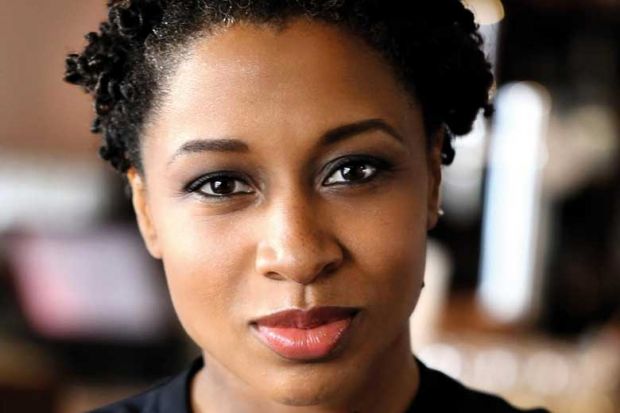Black female academics face a culture of “passive bullying and racial microaggressions” in UK universities that holds back their chances of promotion, a study claims.
That finding is part of a report released by the University and College Union on 4 February that draws on interviews with 20 black female professors.
Many of them detailed what they considered to be the extra pressures that black women faced on top of the problems of managing high workloads and managerial demands familiar to other staff.
Some respondents talked about their experiences of overt and passive bullying and clumsy stereotyping, explained the report’s author, Nicola Rollock (pictured), reader in equity and education at Goldsmiths, University of London.
Some respondents spoke of what Dr Rollock called a “messy, convoluted and protracted path to professorship that is characterised by a lack of transparency and fairness” when they were “overtaken by less qualified and less experienced white female colleagues in appointments to new posts”. Others had delayed applying for professorships “as a result of unsupportive or bullying heads of department” and had found promotion processes to be “frustrating and unjust”.
“One respondent described waiting at least 10 years before applying because of the obstacles presented by her head of department,” the study says.
Others in the study describe a culture in which the route to professorship is challenging, lacks transparency and values only certain forms of knowledge and achievement.
Some also talk specifically about the lack of support from white female colleagues, who “despite an expressed commitment to feminism…kowtowed to the views and opinions of white men while ignoring the contributions of women of colour”, the report says.
The study highlights what it calls a “pervasive culture of passive bullying that served to undermine, ignore and pathologise respondents [and] cause mental distress and upset”.
“In worst-case scenarios, this directly interfered with ambitions for progression,” it adds.
The report, Staying Power: The Career Experiences and Strategies of UK Black Female Professors, cites a 2018 Advance HE report that claimed that there were only 25 black female professors in the UK in 2016-17. That would mean, according to UCU analysis, that they constitute roughly 0.1 per cent of all UK professors.
Other bodies put the figure higher: a study by the Runnymede Trust in March 2017 listed 99 black female professors and cited an overall UK tally of 350 in 2016-17, based on Higher Education Statistics Agency data – about 2 per cent of the professoriate.
The report urges the sector not only to “take action to eradicate all forms of bullying and harassment”, but also to make a fundamental shift in how race and racism are understood.
“Rather than starting from a de facto position of assumed fairness, institutions must recognise that how they engage and treat black female academics at each stage of the career trajectory has the potential for unfairness and bias and, in turn, [can] affect their ability to progress successfully to professorship,” the study concludes.
It adds that “the under-representation of black female professors…must be understood as a failure of the system to support them”.
“Institutional statements expressing commitment to equality and diversity lack sincerity in the context of the findings,” said Dr Rollock, who added that “ambition should not be thwarted by discrimination”.
Register to continue
Why register?
- Registration is free and only takes a moment
- Once registered, you can read 3 articles a month
- Sign up for our newsletter
Subscribe
Or subscribe for unlimited access to:
- Unlimited access to news, views, insights & reviews
- Digital editions
- Digital access to THE’s university and college rankings analysis
Already registered or a current subscriber? Login








